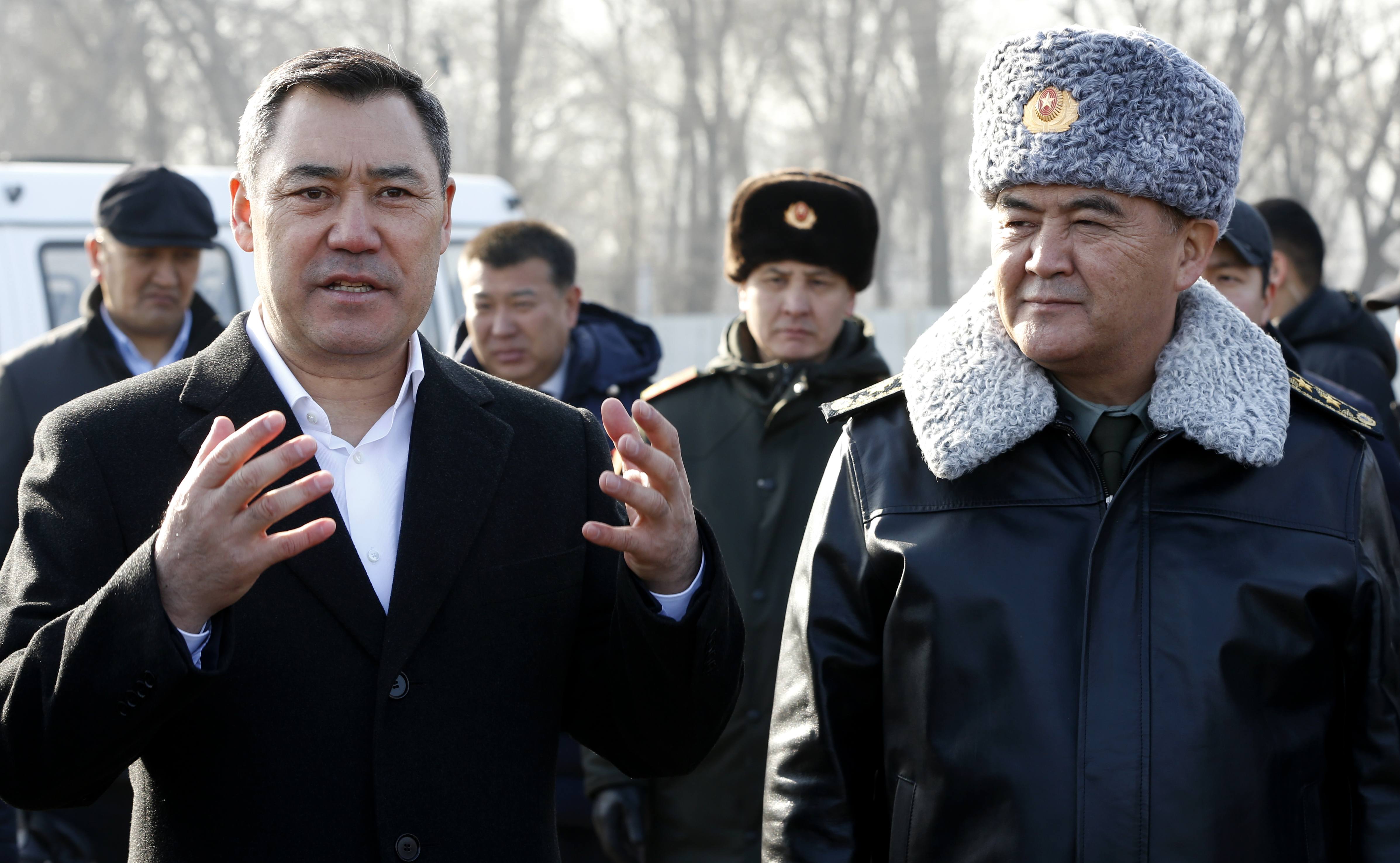Elected in 2021 on an agenda of social unity, Kyrgyz president Sadyr Japarov has since repeatedly taken aim at the country’s free press, and Kyrgyz civil society at large. As seen from Bishkek, the two years since Japarov came to power have been marked by repressive legislation closely inspired by Russia, says Anna Kapushenko, an IPI member and editor-in-chief of Kloop, a major independent news website based in the Kyrgyz capital, in a new IPI interview.
One example is the continued targeting of Azattyk, the Kyrgyz branch of the U.S. Congress-funded media corporation RFE/RL. Following an access block imposed on the media’s website, the Ministry of Culture initiated proceedings in January aiming to outlaw Azattyk’s operations in the country. While this case is being examined in local courts, authorities have frozen the media outlet’s accounts in Kyrgyzstan, making Azattyk unable to pay salaries. The outlet has also faced abusive fines imposed by the Kyrgyz government. On March 17, a court in Bishkek refused to satisfy a complaint by Azattyk, which considers these actions illegal.
“We analyzed the feature video by Azattyk together with media experts”, says Kapushenko, referring to a report by the media on hostilities near the Kyrgyz-Tajik border in 2022, which authorities used as a pretext to block Azattyk. “All of the media experts we spoke with said that there was no manipulation or false information in this video. Azattyk simply presented the Tajik point of view, the official position of the Tajik authorities.”
Azattyk, however, is not the only target in President Japarov’s campaign against the free press, which presidential allies claim is part of a necessary fight against “the fifth column” in Kyrgyzstan, echoing arguments behind repressive legislation adopted in Russia over the past decade.
“I think they inspire themselves with what happens in Russia, but not only do they inspire themselves, they also advise one another”, Kapushenko tells IPI. “Officials in Kyrgyz security forces study in Moscow. For this reason, they directly interiorize the experience of Russian security forces…So this resembles not just a copy machine, but a direct implementation of Russian scenarios in Kyrgyzstan.”
Journalists are held responsible for all of the country’s woes, Kloop’s editor-in-chief says. “Many articles [in pro-government sources] are currently published claiming that independent media receive grants from America, from the West. They allegedly interfere in the country’s internal affairs and are trying to destroy the country. They also use the homophobia narrative, saying that all these outlets, and specifically Kloop, are promoting an LGBT agenda, and that for these reasons they should be closed. This narrative is also copied from Russia.”
Serious backslide since Japarov’s rise to power
“It’s hard to say things were like this before, everything changed seriously and fast in the past two years since Japarov became president”, Kapushenko says. “And I think civil society is shocked by this, because everyone believed that our democracy, which we had built for 30 years, would survive this. Just like in Georgia, where their democracy survived, for now, when faced with the recent law against ‘foreign agents’. Unfortunately, the things we won since 2010, when former president Bakiyev was overthrown…all of this was literally thrown into the trash over the past three years.”
The Kyrgyz government sees free speech as an “obstacle in its path”, she says, because “journalists make noise”. She adds: “We can see that this is a strategy, a plan to weaken independent media, to have no alternative viewpoints, and for the only possible opinion to be that the government of Kyrgyzstan is doing an amazing job.”
Systematic repression
Aware of the scale of the country’s backslide, IPI and partner organizations sent a letter requesting a meeting with President Japarov in January to discuss ways out of the crisis. Our message remains unanswered.
The letter co-signed by IPI brought up specific cases, such as the deportation to Russia of investigative journalist Bolot Temirov, in apparent retaliation for his reporting on corruption, the criminal case against Kaktus Media for reporting based on publications by foreign media outlets, and the five-year suspended prison sentence handed to Taalaibek Duishenbiev, the director of private-owned broadcaster Next TV.
Taken together, these incidents indicate a systematic targeting of independent journalism. In April 2022, President Japarov also ratified the law “On Protection from Inaccurate (False) Information,” which grants state officials draconian powers to block news websites without requiring them to justify their decisions and without giving news organizations the opportunity to contest the blocks before they are enforced.
A recently proposed draft law “On Mass Media” has also alarmed journalists in Kyrgyzstan, due to its disproportionate penalties (including the suspension and shutting down of outlets), as well as its requirement for re-registration of all existing media outlets under unclear conditions, which journalists fear could be used to sift out undesirable media.
The extent of the country’s backslide in recent years is telling. If up until 2020, Kyrgyzstan was internationally considered to be by far the freest country in Central Asia, by 2021 the country already resembled neighboring Uzbekistan and Kazakhstan, joining the club of “not free” states, as measured by the U.S.-based Freedom House. Russia’s large-scale invasion of Ukraine and its echoes in Central Asia cast extra fears, with major actors in Kyrgyzstan’s media community worried about the consequences of the country’s dependence on an increasingly authoritarian Russia.
